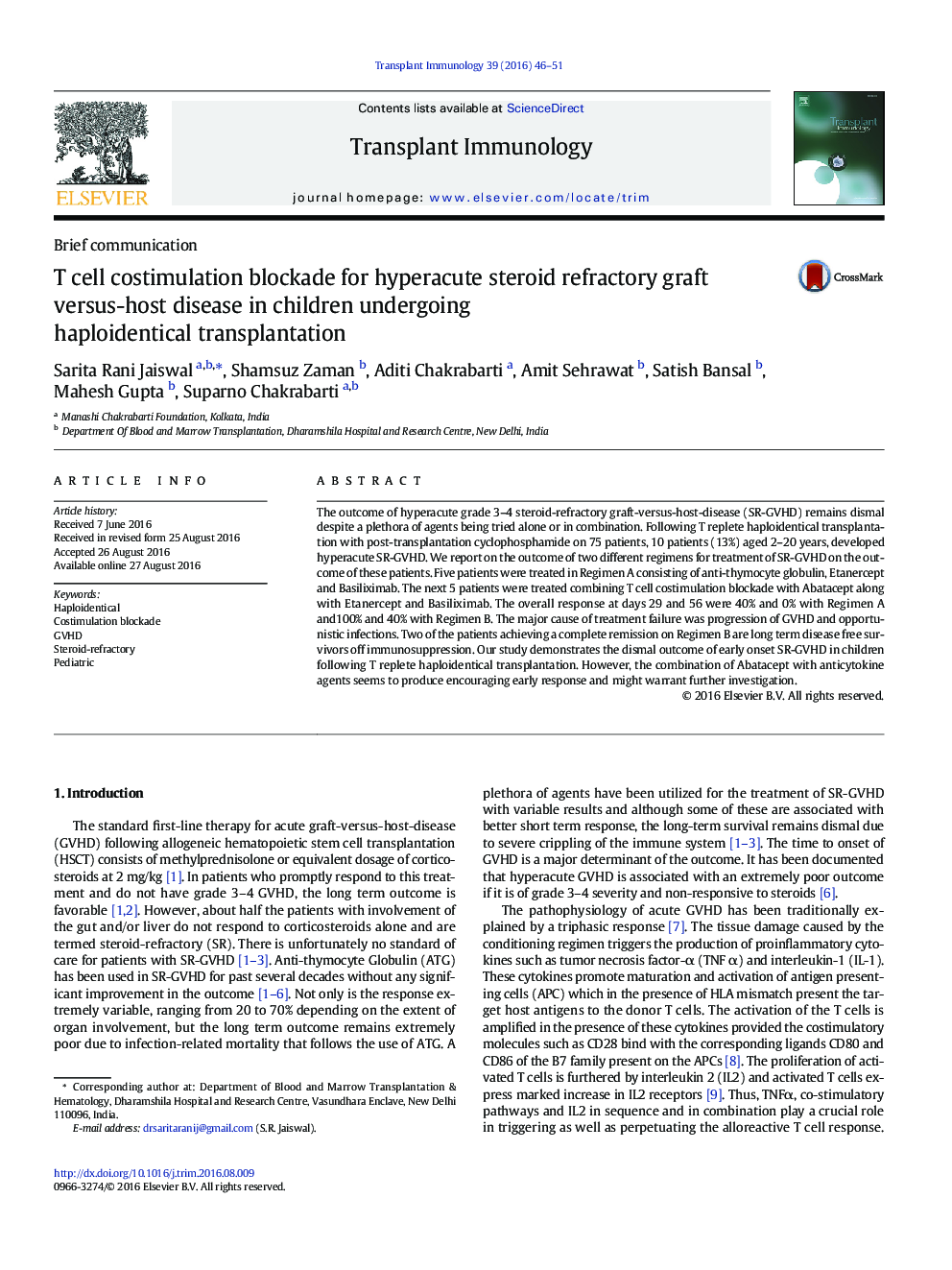| Article ID | Journal | Published Year | Pages | File Type |
|---|---|---|---|---|
| 5670469 | Transplant Immunology | 2016 | 6 Pages |
â¢The outcome of hyperacute grade 3-4 steroid-refractory graft-versus-host-disease (SR-GVHD) following haploidentical HSCT is dismal.â¢The replacement of ATG with Abatacept seemed to produce encouraging early response and might warrant further investigation.â¢Sirolimus in combination with Abatacept might improve recovery of T regulatory cells and result in sustained response.
The outcome of hyperacute grade 3-4 steroid-refractory graft-versus-host-disease (SR-GVHD) remains dismal despite a plethora of agents being tried alone or in combination. Following T replete haploidentical transplantation with post-transplantation cyclophosphamide on 75 patients, 10 patients (13%) aged 2-20Â years, developed hyperacute SR-GVHD. We report on the outcome of two different regimens for treatment of SR-GVHD on the outcome of these patients. Five patients were treated in Regimen A consisting of anti-thymocyte globulin, Etanercept and Basiliximab. The next 5 patients were treated combining T cell costimulation blockade with Abatacept along with Etanercept and Basiliximab. The overall response at days 29 and 56 were 40% and 0% with Regimen A and100% and 40% with Regimen B. The major cause of treatment failure was progression of GVHD and opportunistic infections. Two of the patients achieving a complete remission on Regimen B are long term disease free survivors off immunosuppression. Our study demonstrates the dismal outcome of early onset SR-GVHD in children following T replete haploidentical transplantation. However, the combination of Abatacept with anticytokine agents seems to produce encouraging early response and might warrant further investigation.
